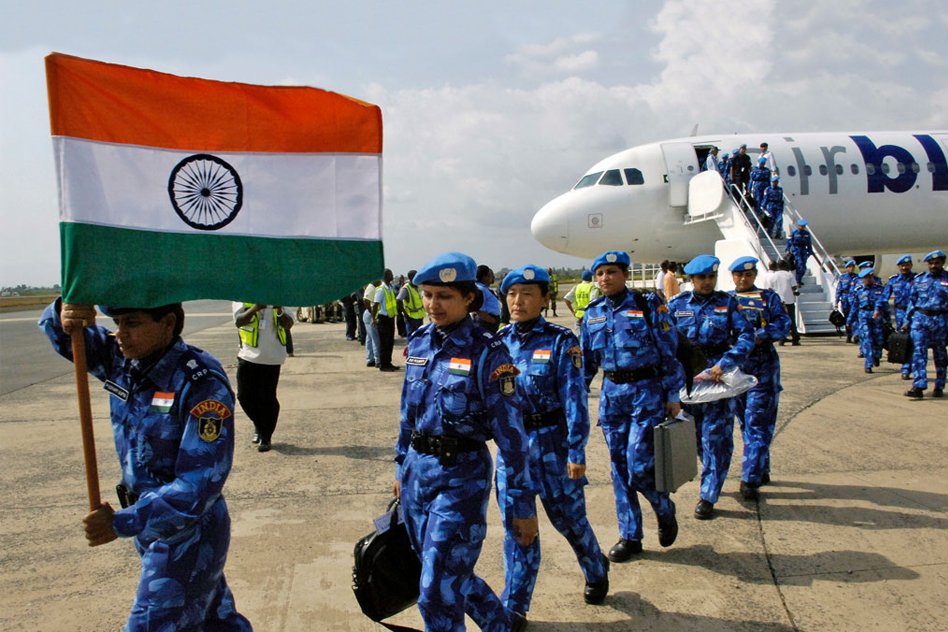
The World's First All-Women Indian Police Unit Is Back Home After 9 Years
15 Feb 2016 3:54 PM GMT
Image Courtesy: un.org
After serving nine years in Liberia, India’s first all-women UN peacekeeping unit is returned home on 14th February. The Indian Formed Police Unit (FPU) is also the world’s first all-women unit to have successfully served the UN Peacekeeping Mission in Liberia (UNMIL) since 2007. The force was drawn from the Rapid Action Force of the Central Reserve Police Force.
Image Courtesy: un.org
As the Indian unit departs from Liberia it leaves behind a legacy of true and dedicated service in support of Liberia and the Liberia National Police. Ellen Johnson Sirleaf, Liberian President said “Our security service now has 17 per cent women – we owe all that to you because it was not even one percent a few years ago. And these women want to emulate you in the way you’ve served this country.” Sirleaf who has been awarded Noble Prize in 2011 was very thankful and appreciative of the women who dedicated 9 years of their service for protecting Liberia and motivating countless women to be a part of Liberia’s security upliftment.
Image Courtesy: un.org
Special Representative of UN Secretary-General Farid Zarif, said that the presence of the peacekeeping force had made the tremendous contribution to bringing greater stability, confidence and in providing assistance to the National police. Sirleaf wanted that the Indian contingent to stay longer but at the same time accepted that the women unit has been out of their country for a long time and needed to return home. She said during their stay in Liberia, they had demonstrated courage, commitment, discipline and professionalism, which were the hallmark of their service to Liberians.
Image Courtesy: un.org
Mr. Gautam Sawang served as the UN Police Commissioner in Liberia. The current strength of people working for the mission comprises 5,934 total uniformed personnel, 4,400 troops, 125 military observers, 1,409 police (including formed units), 381 international civilian personnel, 823 local staff, and 185 UN Volunteers. The Indian FPU was known to be highly sufficient to work in “high-risk” environments, and display high response capabilities to emergencies. UN chief Ban Ki-moon said that their conduct has served as an example of how women can help the world body in its efforts to combat sexual exploitation and abuse.
The Logical Indian community applauds the FPU for their amazing work in Liberia. It is a step ahead in India-Africa partnership. The homecoming of the FPU needs to be celebrated.
 All section
All section
 Image Courtesy:
Image Courtesy:  Image Courtesy:
Image Courtesy:  Image Courtesy:
Image Courtesy:  Image Courtesy:
Image Courtesy: 












